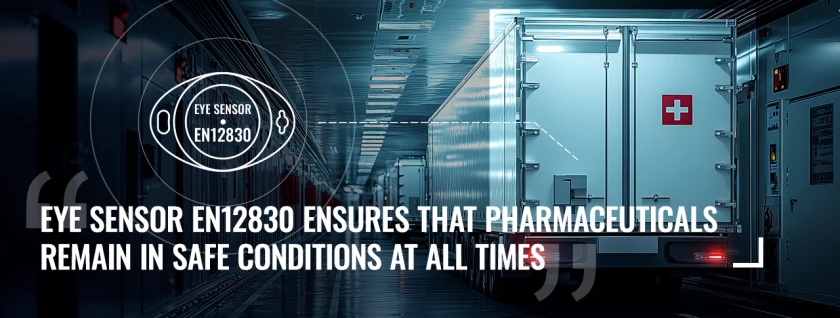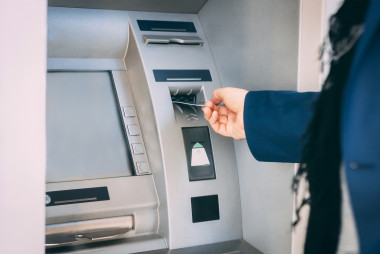INTRO
In the complex process of transporting and storing pharmaceuticals, keeping temperature-sensitive products safe is crucial. Cold chain monitoring ensures that they remain at the correct temperature throughout the supply chain, maintaining product quality. This includes proper storage in warehouses, pharmacies, and hospitals. Even minor temperature deviations can degrade active ingredients, reducing their efficacy or even making them unsafe for patients.
CHALLENGE
A major challenge in pharmaceutical logistics is preventing temperature fluctuations. According to the World Health Organization (WHO), up to 20% of temperature-sensitive products are damaged during transport due to broken cold chains. This results in financial losses of around $35 billion each year, not to mention the potential risks to patients posed by compromised medications that may lose their efficacy or become harmful.
The pharmaceutical industry is subject to stringent regulations, such as Good Distribution Practice (GDP), which require the continuous monitoring and accurate documentation of storage conditions. Failure to comply can result in legal repercussions, financial penalties, and reputational damage. Adherence to these standards is a complex and resource-intensive process.
According to the African Centres for Disease Control and Prevention (CDC) and the African Development Bank, less than 30% of pharmaceutical products consumed in Africa are manufactured locally. The continent also imports an astonishing 99% of its vaccines, as well as between 70% and 90% of its medicines and medical devices.
This means that pharmaceutical goods often travel long distances, frequently passing through several countries and continents before reaching their destination. In such cases, it is critically important to maintain the correct temperature throughout the entire transportation chain to ensure the efficacy and safety of the pharmaceuticals.
Many clinics and pharmacies still rely on manual temperature monitoring for medicines and vaccines. Typically, refrigerator or freezer temperatures are recorded by hand at scheduled intervals using thermometers and logbooks. This method is time-consuming and can easily lead to errors, such as missing information or writing down incorrect numbers. Such errors can make it difficult to adhere to the relevant regulations and delay the resolution of any issues.
Pharmaceutical supply chains involve multiple modes of transport, storage facilities, and international shipments in varying climates. Each transition point introduces the potential for temperature deviations, which makes it challenging to maintain consistent temperature control and increases the likelihood of product spoilage. Luckily, Teltonika GPS devices can be of great assistance in this matter.

SOLUTION
To successfully overcome the previously mentioned challenges, we use Teltonika FMC234 vehicle GPS tracker alongside EYE Sensor EN12830 model and the EN12830 EYE APP. This combination provides accurate, real-time temperature monitoring, ensuring that sensitive medical products remain within the approved temperature range throughout the supply chain.
How it works - to make it clearer, we describe how the solution operates in two of the most common scenarios.
Monitoring temperature during the transportation of pharmaceuticals. FMC234 tracker must be installed inside a reefer to receive Bluetooth® Low Energy signals from EYE Sensors EN12830. These compact devices can be placed inside refrigerated trucks or directly inside temperature-sensitive boxes to monitor conditions throughout the journey.
EYE Sensors EN12830 will measure and transmit real-time temperature readings throughout the entire journey. With an operating range of –20 °C to +60 °C, they are perfectly suitable for a wide variety of pharmaceutical products. The sensors support configurable temperature thresholds and will trigger an alert if values move outside the predefined acceptable range.

They also include internal memory for data logging, ensuring that all data is securely recorded and retrievable, even during short signal disruptions. This ensures compliance with EN12830 standards for cold chain monitoring. All temperature and location data collected by Teltonika FMC234 is transmitted to a remote monitoring platform.
Logistics teams can use the chosen platform to track the exact position of the cargo alongside live and historical temperature records. This provides full visibility throughout the supply chain, enables immediate action if thresholds are breached, and offers documented proof that pharmaceutical products have been transported under the correct conditions.
Monitoring the storage temperature of pharmaceuticals. EYE Sensors EN12830 are placed inside medical refrigeration units to continuously monitor temperature with great accuracy. They provide highly precise measurements and are certified to a temperature class of ±0.5 °C, meaning the difference between the actual and measured temperatures will not exceed ±0.5 °C. This level of precision and continuous tracking ensure that sensitive pharmaceuticals are always stored under optimal conditions.
Teltonika EN12830 EYE APP allows medical teams and responsible personnel to view current and historical temperature data, making it easy to keep track of storage conditions. The solution also enables users to export temperature logs as required, for instance, during inspections or compliance checks. Maintaining clear visibility of storage environments helps to protect the integrity of pharmaceuticals such as vaccines, insulin and biologics, ensuring they always remain safe and effective.
TOPOLOGY #1
TOPOLOGY #2
BENEFITS
- Real-time monitoring of storage and transportation - it ensures that pharmaceutical products are always kept in safe conditions, whether stored in a warehouse or a pharmacy, or transported in a refrigerated vehicle.
- Instant alerts for temperature deviations – these immediate notifications allow for swift intervention and prevent pharmaceutical spoilage.
- Internal memory ensures data integrity - EYE Sensor EN12830 stores temperature data even during signal disruptions, ensuring that no information is lost.
- Customisable temperature thresholds – users can define acceptable ranges, and the system will automatically issue an alert when conditions exceed the set limits.
- Wide temperature range – with monitoring of temperatures ranging from –20 to +60 °C, the solution meets a wide variety of pharmaceutical storage and transport needs.
- No wiring is required – Teltonika EYE Sensors communicate wirelessly via Bluetooth®, ensuring a quick, clean and cost-effective installation.
WHY TELTONIKA?
Teltonika delivers pharmaceutical-grade telematics, engineered to protect the cold chain from the factory gate to the pharmacy fridge. Our certified EYE Sensor EN12830 model, when used with the robust FMC234 tracker, provides real-time temperature and location data with ±0.5 °C accuracy. Instant deviation alerts and tamper-proof logs provide quality managers with the evidence that regulators require, while reducing the risk of spoilage and recalls.
All parties involved, especially those in logistics, delivery services and the pharmaceutical industry, can improve their operations and add value to society by choosing the highest-quality tracking devices and accessories. Choose Teltonika's telematics division to turn compliance into a competitive advantage, protecting patient safety and preserving product integrity while providing trustworthy data.
Featured product
FMC234Device operation for up to 8 days, even if external power is lost, makes it ideal for recovering stolen vehicles
Large-capacity 1,000 mAh Li-Po internal backup battery for extended device operation time
Innovative click-type two-phase closing with no additional tools needed
Robust IP67-rated casing provides trusted protection against dust and resistance to water









